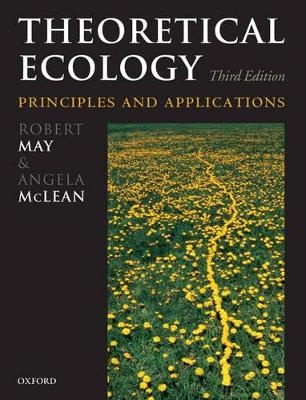
Theoretical Ecology
Oxford University Press (Verlag)
978-0-19-920999-6 (ISBN)
Theoretical Ecology provides a succinct, up-to-date overview of the field set in the context of applications, thereby bridging the traditional division of theory and practice. It describes the recent advances in our understanding of how interacting populations of plants and animals change over time and space, in response to natural or human-created disturbance. In an integrated way, initial chapters give an account of the basic principles governing the structure, function, and temporal and spatial dynamics of populations and communities of plants and animals. Later chapters outline applications of these ideas to practical issues including fisheries, infectious diseases, tomorrow's food supplies, climate change, and conservation biology. Throughout the book, emphasis is placed on questions which as yet remain unanswered.
The editors have invited the top scientists in the field to collaborate with the next generation of theoretical ecologists. The result is an accessible, advanced textbook suitable for senior undergraduate and graduate level students as well as researchers in the fields of ecology, mathematical biology, environment and resources management. It will also be of interest to the general reader seeking a better understanding of a range of global environmental problems.
Robert May is Professor of Zoology at the University of Oxford and Imperial College London. His research, first at Princeton University and since 1988 at Oxford University, has dealt with the ways in which plant and animal populations - either singly or in interacting communities - change over time, especially in response to natural or human-created disturbance. His work on chaos, on how infectious diseases can influence the numerical abundance or geographical distribution of populations (including applications to humans and HIV/AIDS), on estimating species' numbers and rates of extinction, and more generally on conservation biology have been recognised by several major International Prizes (Crafoord, Balzan, Blue Planet). He has been Chief Scientific Adviser to the UK Government (1995-2000), President of the Royal Society (2000-2005), and in 2001 was one of the first appointees to the UK Upper House by the Independent House of Lords Appointments Commission. Angela McLean is Professor of Mathematical Biology in the Department of Zoology and Director of the Institute for Emergent Infections of Humans in the James Martin 21st Century School. Her research interests lie in the use of mathematical models to aid our understanding of the evolution and spread of infectious agents. This encompasses modelling of the dynamics of infections and immune responses within individual hosts as well as models of the spread of infections from one host to another
1. Introduction ; 2. How Populations Cohere: Five Rules for Cooperation ; 3. Single species dynamics ; 4. Metapopulations and Their Spatial Dynamics ; 5. Predator Prey Interactions ; 6. Plant Population dynamics ; 7. Interspecific Competition and Multispecies Coexistence ; 8. Diversity and stability in ecological communities ; 9. Community: Patterns ; 10. Dynamics of Infectious Diseases ; 11. Fisheries ; 12. A Doubly Green Revolution ; 13. Conservation Biology ; 14. Climate Change and Conservation Biology ; 15. Unanswered Questions and why they Matter
| Erscheint lt. Verlag | 15.2.2007 |
|---|---|
| Zusatzinfo | numerous line drawings, tables, halftones and mathematical examples |
| Verlagsort | Oxford |
| Sprache | englisch |
| Maße | 188 x 245 mm |
| Gewicht | 592 g |
| Themenwelt | Naturwissenschaften ► Biologie ► Botanik |
| Naturwissenschaften ► Biologie ► Ökologie / Naturschutz | |
| Naturwissenschaften ► Biologie ► Zoologie | |
| ISBN-10 | 0-19-920999-5 / 0199209995 |
| ISBN-13 | 978-0-19-920999-6 / 9780199209996 |
| Zustand | Neuware |
| Haben Sie eine Frage zum Produkt? |
aus dem Bereich


